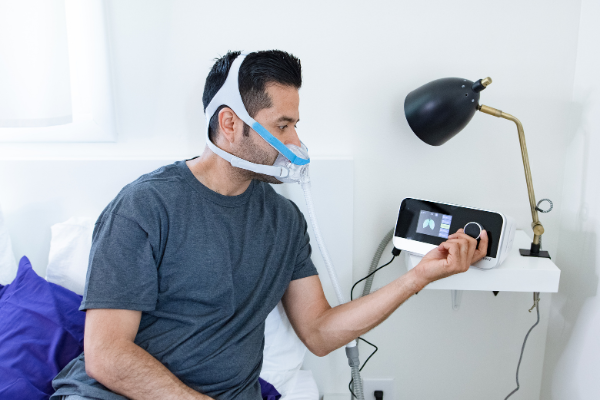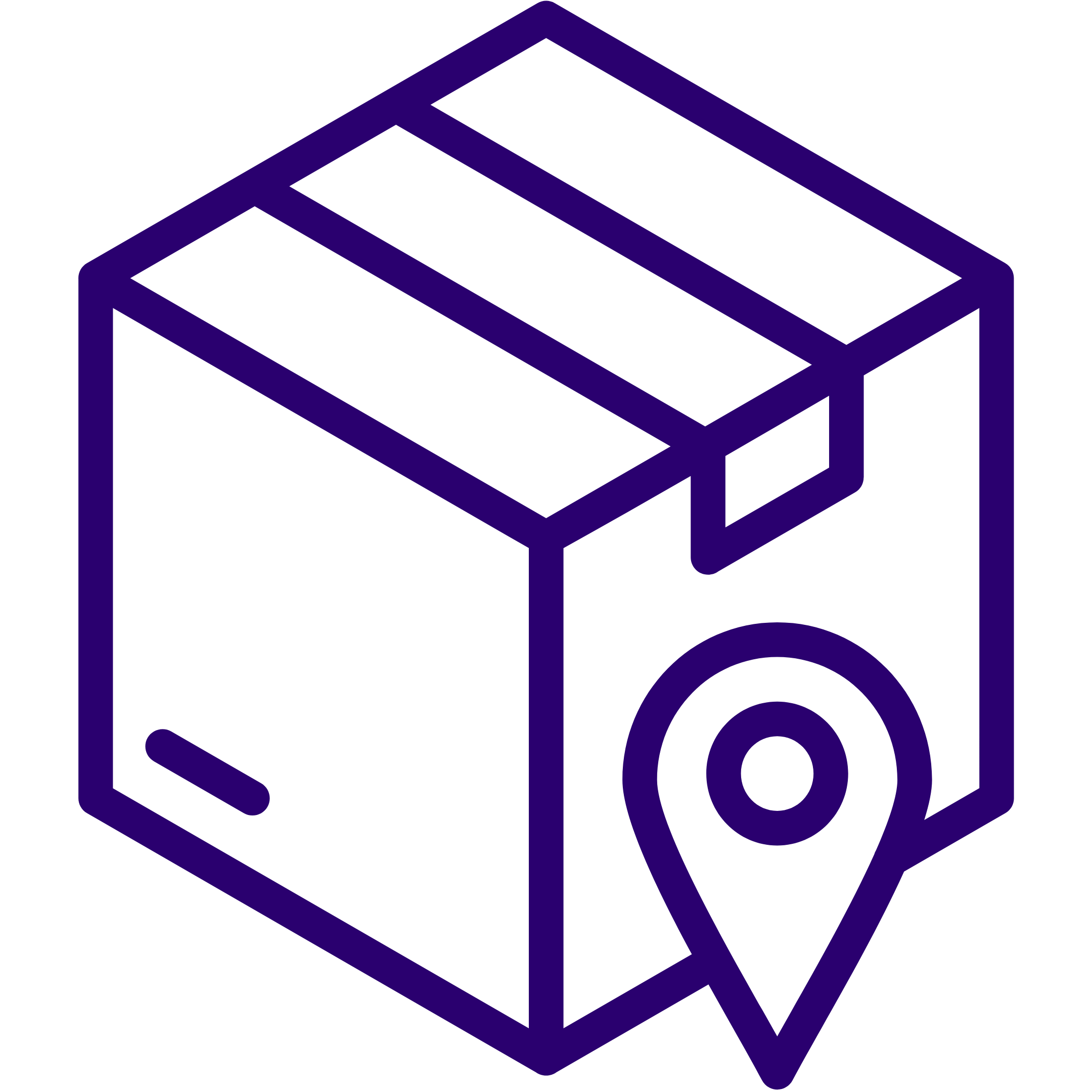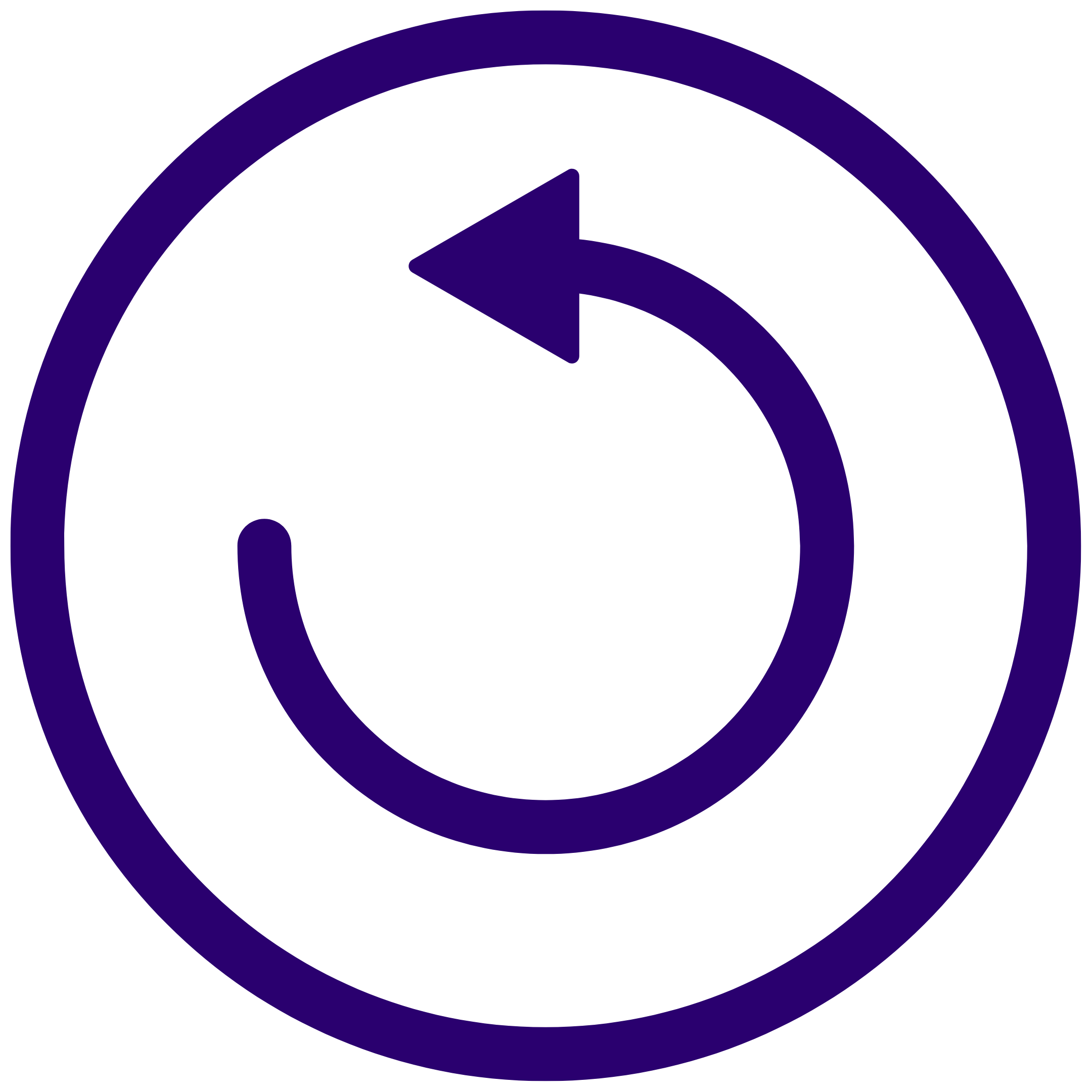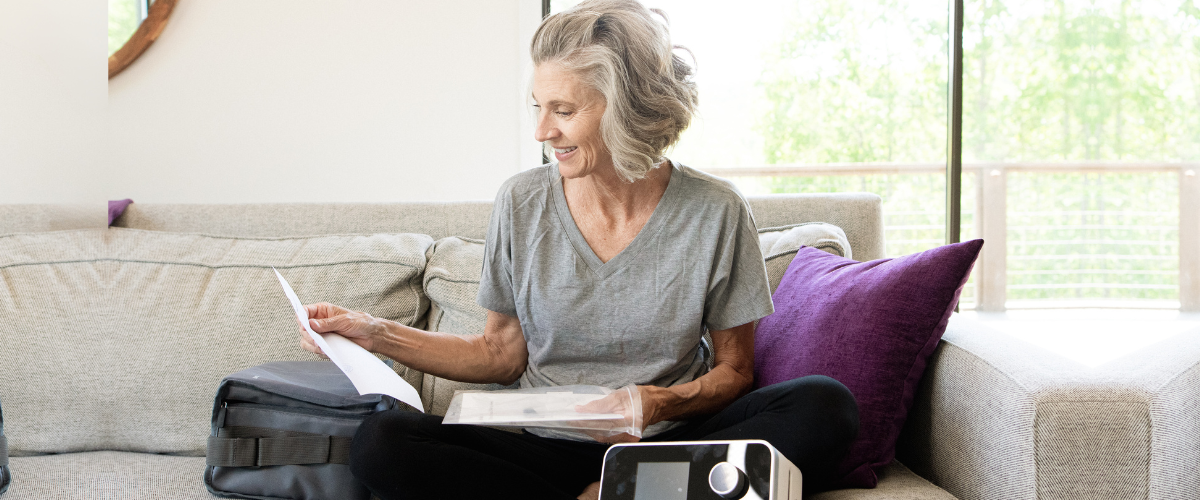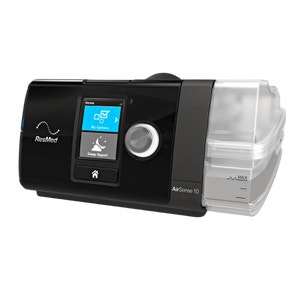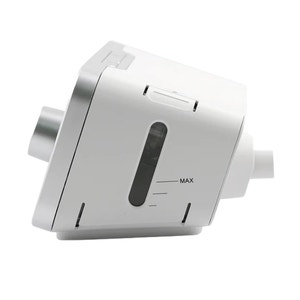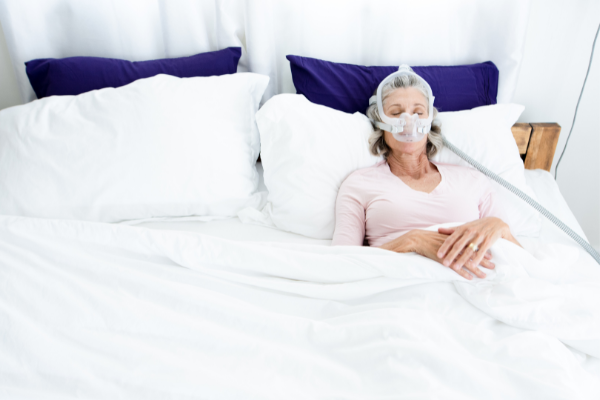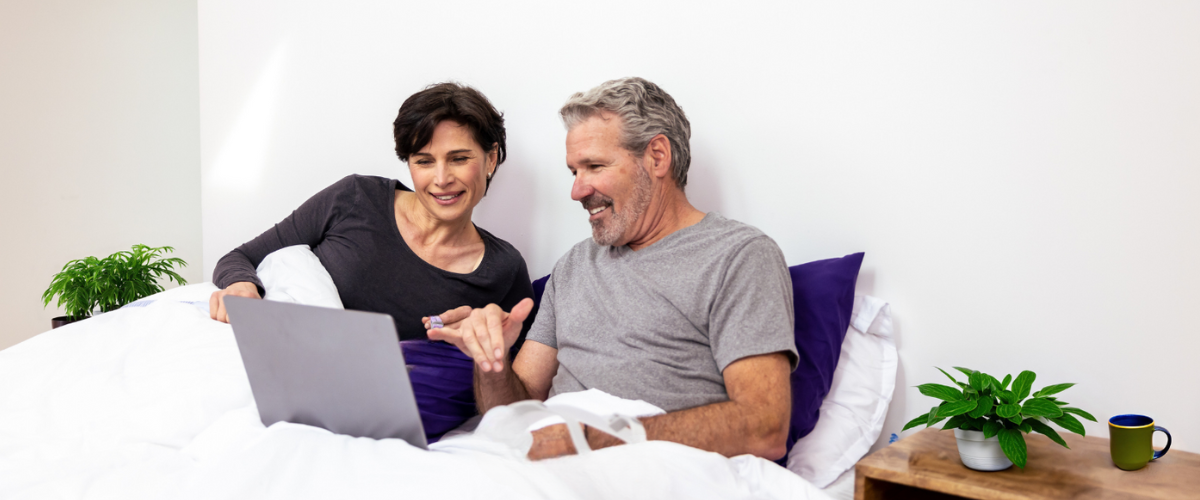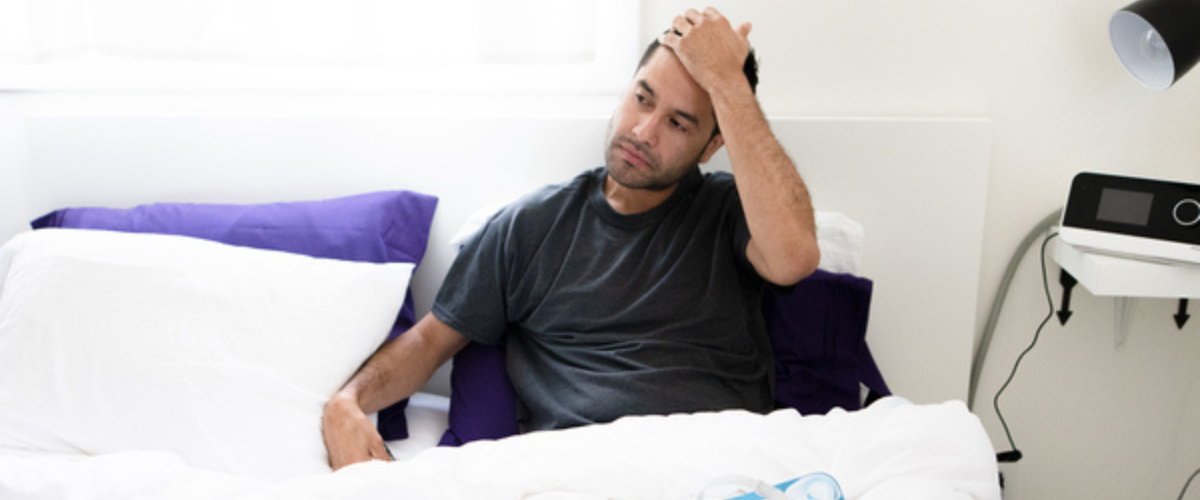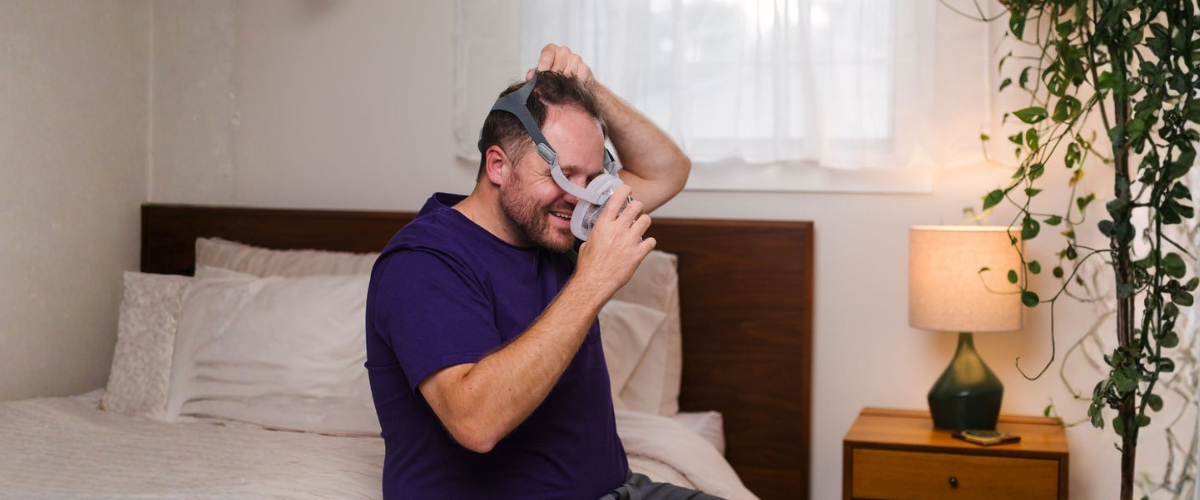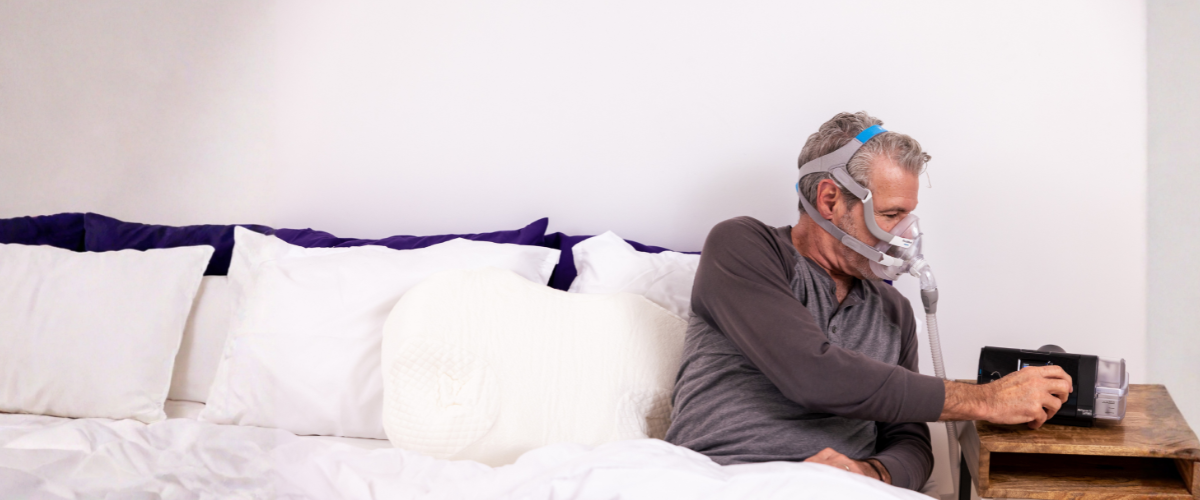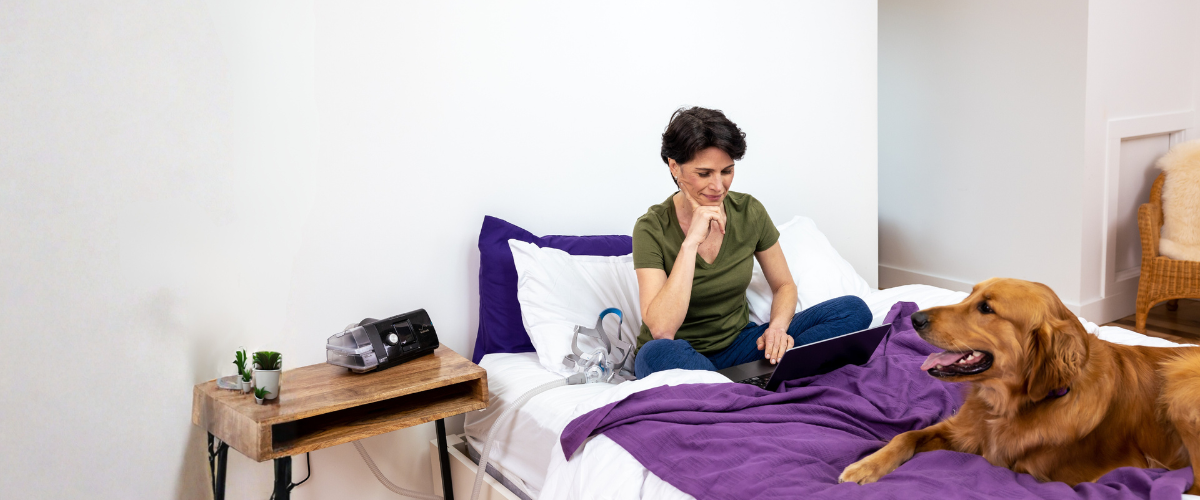The Differences Between CPAP Machines, APAP Machines, and BiPAP Machines
Obstructive sleep apnea (OSA) and central sleep apnea are common sleep disorders that affect millions of people worldwide. Thankfully, there are numerous treatments available to help you experience a restful sleep. Many of these solutions come in the form of different types of PAP devices and PAP machines as options for overarching PAP therapy. Each of these sleep apnea treatment devices are able to address the various needs that arise from sleep apnea — it’s just about finding the right solution for you! Continuous Positive Airway Pressure (CPAP) machines have been the standard treatment for sleep apnea for many years. However, as technology has advanced, other options have become available, including Auto-Adjusting Positive Airway Pressure machines(APAP Machines) and Bilevel Positive Airway Pressure machines (BiPAP machines). In this blog, we will explore the differences between APAP, CPAP, and BiPAP machines, along with their benefits and potential drawbacks (or even side effects), to help you make an informed decision about which PAP therapy may be a good fit for you.
CPAP Machine (Continuous Positive Airway Pressure)
CPAP machines deliver a continuous stream of airflow at a fixed pressure to keep the airway open during sleep. Here are some key points to consider:
Benefits:
- Effective: CPAP is highly effective in treating obstructive sleep apnea (OSA), the most common type of sleep apnea. The continuous air pressure helps CPAP users sleep through the night without adjusting pressure settings. The continuous pressure helps ensure regular, uninterrupted treatment.
- Widely Used: CPAP machines have a long history of use and are often more readily available. They are convenient and easy to find and typically have a wider array of options.
- Affordable: Compared to other options, CPAP machines tend to be a more budget-friendly PAP device
Potential Drawbacks:
- Fixed Pressure: The main drawback of CPAP can be the fixed pressure setting, which may not be suitable for everyone. Some users find it uncomfortable or difficult to adjust to, especially if it requires high pressure settings.
- Compliance Issues: Many people struggle with CPAP compliance due to discomfort or issues with their CPAP face mask fit.
- Limited Data: CPAP machines typically provide limited data on therapy progress.
Best Suited for: CPAP is typically prescribed for patients with obstructive sleep apnea (OSA), where the primary issue is a physical blockage of airflow due to relaxed throat muscles or other obstructions. It's effective for all severity levels of OSA, from mild to severe.
APAP Machine (Auto-Adjusting Positive Airway Pressure)
APAP machines are designed to automatically adjust the pressure range delivered to the airway based on the individual's needs throughout the night, delivering different pressure as the user sleeps.
Benefits:
- Adaptive Treatment: APAP machines can adapt to changes in your breathing patterns and pressure needs, making them more comfortable for many users. They’re a good choice if your breathing patterns change throughout the night due to changes in your sleeping position, mask style, and other factors.
- Data Tracking: APAP devices often come with advanced data tracking capabilities, allowing you and your healthcare provider or sleep specialist to monitor your progress more effectively.
- Improved Compliance: The ability to adjust pressure settings can enhance compliance and overall comfort by having a different algorithm than CPAP and BiPAP machines.
Potential Drawbacks:
- Cost: APAP machines are typically more expensive than traditional CPAP machines.
- Complexity: The automatic pressure range adjustments can be complicated for some users, and settings may need to be fine-tuned by a healthcare professional or sleep specialist.
- Not Suitable for All: APAP may not be appropriate for individuals with certain medical conditions or those who require consistent air pressure.
Best Suited for: Using APAP machines for APAP therapy means a more versatile machine, and is often recommended for patients with mild to moderate OSA, or for those who experience varying levels of obstruction in their airway and airflow during sleep. They can also benefit patients with complex sleep apnea syndrome (combination of OSA and central sleep apnea), as they can adapt to both types of events.
BiPAP Machines (Bi-Level Positive Airway Pressure)
BiPAP machines, also known as Bi-level devices, offer two distinct pressure settings: a higher pressure for inhalation and a lower pressure for exhalation. The distinction of pressure settings is what truly makes BiPAP devices and BiPAP therapy different from CPAP and APAP. Here are the benefits and drawbacks of BiPAP machines:
Benefits:
- Enhanced Comfort: BiPAP machines are often prescribed for individuals who find it difficult to exhale against a constant air pressure, making them more comfortable for certain users.
- Complex Sleep Disorders: BiPAP is sometimes used for complex sleep disorders like central sleep apnea or hypoventilation syndromes.
- Customization: BiPAP allows for greater customization of PAP therapy compared to CPAP devices.
Potential Drawbacks:
- Higher Cost: BiPAP machines tend to be more expensive than both CPAP machines and APAP machines.
- More Thorough Analysis Required: BiPAP typically requires a more thorough evaluation by a sleep specialist than a different machine.
- Potential Mask Discomfort: Users may still experience mask discomfort or other issues that can be common with OSA therapy.
Best Suited for: BiPAP machines are commonly prescribed for patients with specific needs, such as those with central sleep apnea (CSA), complex sleep apnea syndrome (combination of OSA and CSA), or individuals who have trouble exhaling against a constant pressure, including those with certain neuromuscular disorders or obesity hypoventilation syndrome.
Determining Your PAP Therapy: Insights from Sleep Studies
While understanding the differences between APAP, CPAP, and BiPAP machines is essential, the most accurate way to determine which type of machine will provide optimal relief for your sleep apnea is through a sleep study, also known as a polysomnography. In-lab sleep studies are comprehensive tests conducted by sleep specialists in controlled environments to monitor various physiological parameters during your sleep. However, with great advancements, many options for Home Sleep Tests now exist as well! Sleep studies and sleep tests play a crucial role in identifying the severity and type of sleep apnea you're experiencing, and they help healthcare professionals tailor the treatment plan that will suit you best.
What to Consider When Selecting Your PAP Device
-
Type of Sleep Apnea: There are different types of sleep apnea, including obstructive sleep apnea (OSA), central sleep apnea (CSA), and complex sleep apnea syndrome (a combination of both). The type of sleep apnea you have can influence the machine choice:
-
Obstructive Sleep Apnea (OSA): CPAP and APAP machines are often used to treat OSA, as they focus on maintaining an open airway by delivering positive pressure.
-
Central Sleep Apnea (CSA): BiPAP machines are commonly used for CSA, where the primary issue is a lack of respiratory effort. The dual pressure settings of BiPAP support inhalation and exhalation more effectively.
-
- Severity of Your Sleep Apnea: The severity of your sleep apnea is a primary factor in deciding which type of machine is most suitable for you. A sleep study measures the number of apnea and hypopnea events (breathing interruptions) that occur per hour. This measurement is known as the Apnea-Hypopnea Index (AHI). Based on your AHI score, your doctor can classify your sleep apnea as mild, moderate, or severe.
- Mild Sleep Apnea: For individuals with mild sleep apnea, CPAP therapy may be a suitable option, especially if they can comfortably tolerate the fixed pressure setting.
- Moderate to Severe Sleep Apnea: Patients with moderate to severe sleep apnea might benefit from an APAP or BiPAP machine to ensure that their therapy is adequately adjusted to their changing breathing patterns.
- Patient Comfort and Usage: Your comfort and willingness to comply with treatment are crucial considerations. A sleep study can provide insight into your sleep patterns, such as when you experience the most apnea events and any associated discomfort. This information can help doctors tailor your therapy settings to enhance your comfort and usage.
- Pattern of Events: The type of sleep apnea events you experience, whether they are primarily obstructive or central, heavily influences the choice of machine. BiPAP machines are better suited for central sleep apnea events.
- Data Insights: Modern machines, especially APAP devices, provide detailed data on your sleep patterns and therapy usage. These insights help healthcare professionals fine-tune your treatment. An APAP machine's ability to automatically adjust pressure settings based on detected events can be particularly advantageous for patients whose needs fluctuate during the night.
- Medical History: Your overall medical history, including any pre-existing conditions, lung function, and cardiovascular health, can influence the machine choice. Patients with certain medical conditions may benefit more from one type of machine over another.
- Individual Health Factors: Specific medical conditions or respiratory issues may influence the choice of machine. Your healthcare provider will consider your overall health in their recommendation.


The Decision for Your Better Sleep
Selecting the right sleep apnea machine is a crucial step in effectively managing your condition and improving your overall well-being. Each type of machine has its own set of benefits and downsides. Ultimately, the choice between APAP, CPAP, or BiPAP should be made in consultation with a healthcare provider or sleep specialist who can assess your specific needs and recommend the most suitable option for your individual case.
Whatever you choose, consistent use of your sleep apnea machine can significantly improve your sleep quality and overall health.
Best of all, you can now enjoy the benefits of growth of sleep medicine and conduct a sleep test directly in the comfort of your own home! You can learn more about the convenient Home Sleep Test we offer here.
